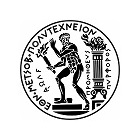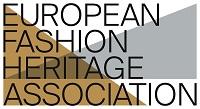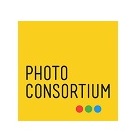consortium composition
The consortium governing the project is adequately representing a wide range of expertise, as relevant Higher Education Institutions (KU Leuven, Erasmus Universiteit Rotterdam and the National Technical University of Athens) join hands with a web education specialist (Web2Learn) and two professional networks for Cultural Heritage Institutions: Photoconsortium and the European Fashion Heritage Association. This mix of knowledge, skills, experiences and networks guarantees a layered approach toward a diverse range of stakeholders.

Project Coordinator
Methodology, user requirements and guidelines for Cultural Heritage Institutions and universities
www.kuleuven.be
KU Leuven boasts a rich tradition of education and research that dates back six centuries. The university’s basic research orientation has always been and will remain fundamental research. At the same time, the university remains vigilantly open to contemporary cultural, economic and industrial realities, as well as to the community’s needs and expectations. KU Leuven conducts fundamental and applied research in all academic disciplines with a clear international orientation. In the department of Literary and Cultural Studies, the research unit CS Digital focuses on digital transformation for the sector of GLAM/CHI (Galleries, Libraries, Archives and Museums / Cultural Heritage Institutions). It researches how digital technologies can be implemented in the workflow of such organisations, and experiments both with workshop methodologies as new outreach and publication formats. Finally, CS Digital is responsible for the development of communication strategies in different research consortia. Its main focus is on leveraging photographic heritage for educational reuse and for user engagement.

Economic and social sustainability of citizen enhanced open heritage projects
www.eur.nl
Founded in 1913, Erasmus University Rotterdam (EUR) is currently one of the biggest universities of the Netherlands with a strong social orientation, drawing inspiration from the issues facing the metropolis Rotterdam. It is deeply embedded in international research networks and one of Erasmus University’s priorities is to recruit and train top academic talent. Socially relevant research is increasingly carried out by multidisciplinary teams. The underlying areas of expertise can be grouped into four domains in which the leading research conducted by Erasmus University can be seen: Health, Wealth, Governance and Culture. The Erasmus School of History, Culture and Communication (ESHCC) is one of the schools of the EUR, hosting three departments: History, Media and Communication, and Arts and Cultural Studies. The research and education at ESHCC takes place at the interface between the Humanities and the Social Sciences. Within the ESHCC, there is a group of scholars experts in Cultural Economics, or the application of economic analysis to study the arts and cultural sectors. The research group aims at advancing the understanding of the creative and performing arts, the heritage and cultural industries, in both the public and private sectors, through the application of economic analysis in its broadest sense.

Lessons learnt about the role of digital technologies in facilitating crowd science in cultural heritage and education
NTUA is the oldest and most prestigious educational institution of Greece in the field of technology and has contributed unceasingly to the country’s scientific, technical, and economic development since its foundation in 1836. The School of Electrical and Computer Engineering (ECE NTUA) is well known in Greece and abroad for the research achievements of its faculty members and the good reputation of its students and alumni. The Artificial Intelligence and Learning Systems Laboratory (AILS Lab) is one of the main research units of ECE NTUA, pioneering from 1989 in areas such as knowledge representation and reasoning, semantic web technologies, neural networks, multimedia content analysis, human interaction, and fuzzy logics. It has participated as a technical partner in the creation and development of the European Digital Library – Europeana and, through its participation in European projects related to aggregation services and reuse tools for digital cultural heritage, it has amassed considerable experience in applying state-of-the-art research results for the development of user-friendly and smart applications in the field of cultural heritage. In this context, AILS has developed and supported the MINT platform, which is used by cultural organizations for the processing and publication of their collections in the Europeana Web portal. AILS has also implemented the collaborative platform WITH, which provides access to digital cultural heritage items from different repositories and offers a number of added-value services for the creative reuse and intelligent exploitation of that content. It has also implemented the WithCrowd platform which streamlines and facilitates the preparation and launching of digital crowdsourcing campaigns for the enrichment of different types of digital cultural heritage assets.

Review of practices of Higher Education engagement in citizen enhanced open science in the area of cultural heritage
https://web2learn.eu/
Web2Learn is an SME that groups a team of experts qualified in the development and management of digital solutions for open and social learning. The organisation responds to recent calls in education, science and the professional sector for more open collaboration and the open sharing and creation of content and information in accordance with a clear ethical and transparent framework. It does so by offering training and learning in Open Education to teachers, lecturers and professionals. Its activities particularly focus on how technology can be used to develop active learning approaches that encourage openness and citizen participation. Web2Learn joins forces with pan-European initiatives and networks such as DARIAH, CLARIN, European Open Science Cloud (EOSC) and OpenAIRE, and adopts Responsible Research and Innovation (RRI) principles in the projects the organisation is involved in. Web2Learn provides services and knowledge on how to use digital enhanced social networking to improve social connectivity. In this context, it has developed extensive expertise on the educational value of user-driven, participatory practices of social media and gaming applications.

Development and testing of participatory approaches with citizen heritage
https://fashionheritage.eu/
The European Fashion Heritage Association (EFHA) is a non-profit organisation established in 2014 to bring together and engage fashion institutions (both heritage organisations and creative industries) in the valorisation and exploitation of fashion heritage online. The Association already counts more than 40 member institutions from 13 European countries and it has become an international hub, in which fashion GLAMs (Galleries, Libraries, Archives and Museums), brands, researchers and creatives can share experiences and best practices in the field of digitisation, online access and valorisation of fashion heritage resources, fostering the Digital Transformation in the sector. The Association operates also in the broader landscape of the European digital cultural heritage, contributing as fashion thematic aggregator to Europeana, Europe’s platform for cultural heritage funded by the European Commission. EFHA is actually partner in the Europeana DSI (Digital Service Infrastructure), within which it manages the fashion heritage aggregator and the curation of the fashion thematic collection in the Europeana portal, giving access to the largest and richest fashion heritage digital repository actually available online, where more than one million high-quality fashion digital objects – ranging from historical dresses to accessories, catwalk photographs, drawings, sketches, videos, and fashion catalogues – can be freely accessed, shared and reused.

Dissemination and creation of educational and promotional materials
www.photoconsortium.net
PHOTOCONSORTIUM – International Consortium for Photographic Heritage is a non-profit association whose purpose is the promotion and enhancement of the culture of photography and the photographic heritage. All the initiatives of the association are primarily devoted to serving the interests of its members, an international community of professionals, memory institutions, archives, press agencies and amateurs of cultural heritage photography. PHOTOCONSORTIUM operates as the accredited aggregator to Europeana for digital photographic heritage, and supports access to collections from all over Europe, featuring early photography from some of Europe’s finest historical fonds and prestigious public and private archives. The activities of PHOTOCONSORTIUM are particularly focused on improving educational and participatory access to photographic heritage as a means for citizens to come closer to European culture. Relevant expertise has been built in previous projects all devoted to enhancing the access and reuse of photographic heritage, touching upon the whole range of crowdsourcing and co-creation activities for engaging communities with local and European heritage. Photoconsortium is currently partner in Europeana DSI projects, with tasks on ameliorating content distribution and visualization, metadata quality and showcasing; improving search services and user engagement; and capacity building for the digital transformation of the Cultural Heritage sector.
In 2019, Photoconsortium developed a dedicated resource for the education action: the Educational Portal providing visibility and access to various online educational resources, with a particular focus on the reuse of photographic heritage. This Portal will be implemented as a dissemination tool for CitizenHeritage, offering access to training materials, hosting curated collections, educational blogs and other resources.
collaborations
The Citizen Heritage project is fostering collaboration, knowledge exchange and cross-dissemination actions with other relevant projects and initiatives for citizen participation in culture, cultural and tourism promotion, open science and humanities.
UNCHARTED project studies the emergence of values connected with culture, their configuration and the political impulse that these values could deliver to the society. It also focuses on the valuation practices of the actors involved in cultural life, especially in the areas of cultural participation, cultural production and heritage, and cultural administration. From a European perspective culture has a very strong economic impact as it generates a high volume of employment, but it is also a powerful resource for fighting the main threats that undermine the peaceful coexistence in Europe. In this light, it is worth that cultural policies take into account the strategic plural values of culture. These are currently fundamental challenges for Europe and the main areas in which the project plans to leave its contribution by developing new tools and guidelines for understanding, calibrating and managing the plurality of values of culture.
The INCULTUM project deals with the challenges and opportunities of cultural tourism with the aim of furthering sustainable social, cultural and economic development. It will explore the full potential of marginal and peripheral areas when managed by local communities and stakeholders. Innovative participatory approaches are adopted, transforming locals into protagonists, able to reduce negative impacts, learning from and improving good practices to be replicated and translated into strategies and policies.
WEAVE – Widen European Access to cultural communities Via Europeana project aims to develop a framework to link the tangible and intangible heritage of cultural communities, safeguarding the rich and invaluable cultural heritage which they represent. In addition to developing a suite of new tools for management and visualization of digital heritage content and to aggregating over 5,000 new high-quality records to Europeana, WEAVE organizes a wide range of participative and capacity building activities, to develop a closer connection between cultural heritage institutions (CHIs), minority cultural communities and Europeana.
Website: http://weave-culture.eu
